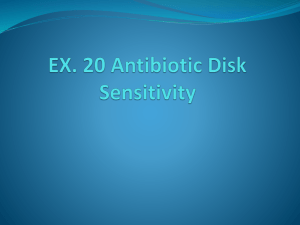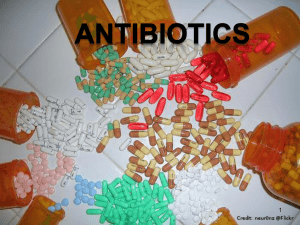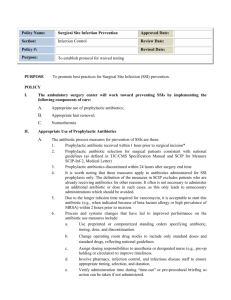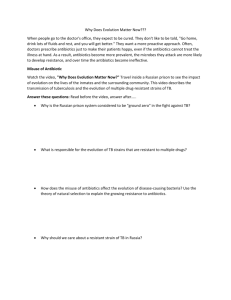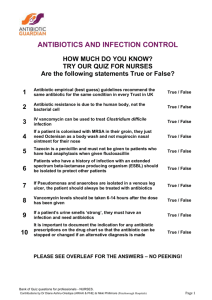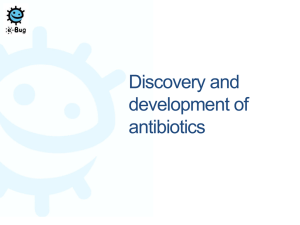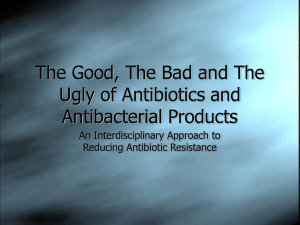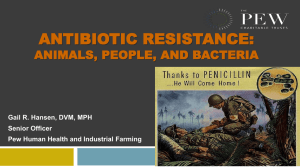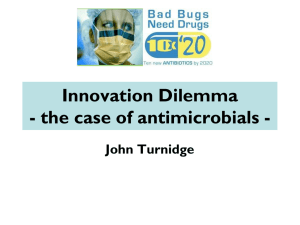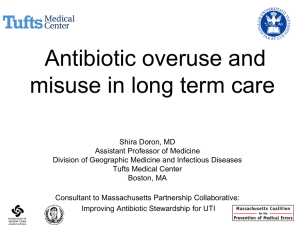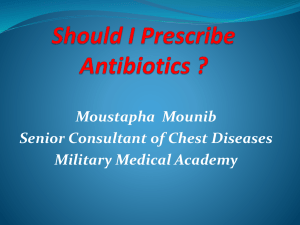Lesson 3 - pp File
advertisement
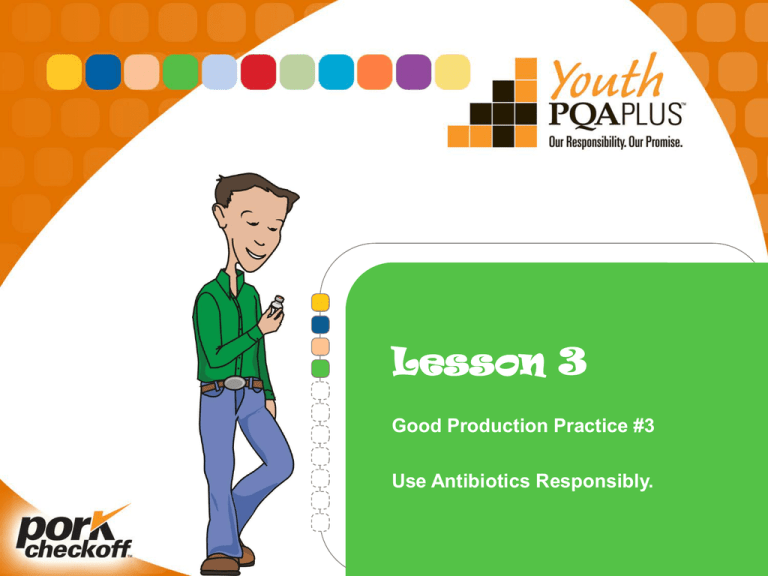
Lesson 3 Good Production Practice #3 Use Antibiotics Responsibly. Objective • This lesson will help you: – Identify principles and guidelines for the responsible use of antibiotics Good Production Practice 3 2 Responsible Antibiotic Use • Antibiotic – Produced by mold or bacteria – Prevents growth or kills bacteria • Antimicrobial – Produced in a laboratory – Prevents growth or kills bacteria Good Production Practice 3 3 Responsible Antibiotic Use • Responsible antibiotic use helps prevent antibiotic resistance Good Production Practice 3 4 Responsible Antibiotic Use • Benefits: – Health and well-being of animals – Food safety – Human health • Antibiotics do NOT replace good management or proper animal care! Good Production Practice 3 5 Responsible Antibiotic Use • Treatment of illness – When an antibiotic is used in animals to help overcome an illness • Prevention of bacterial infection when: – Animals have been exposed to a bacterial infection – Animals are currently exposed to bacterial infection – There is a history of a disease in an operation • Improve nutritional efficiency: – In certain cases antibiotics are used to improve animals’ feed conversion Good Production Practice 3 6 Principles and Guidelines • Take steps to decrease the need for antibiotics • Determine the advantages and disadvantages of using antibiotics • Use antibiotics only when benefits are measurable • Always use professional veterinary input Good Production Practice 3 7 Principles and Guidelines • Only use antibiotics following an appropriate clinical diagnosis • Limit antibiotic treatment to sick or at-risk animals Good Production Practice 3 8 Principles and Guidelines • Antibiotics that are important in treating antibiotic resistant infections in human or veterinary medicine should only be used in animals after careful review and reasonable justification Good Production Practice 3 9 Principles and Guidelines • Mixing together animal health products, including antibiotics, by producers is illegal • Proper handling, storage and disposal of medication and medicated feed is important to minimize environmental contamination Good Production Practice 3 10 Principles and Guidelines • Prevention is the key – – – – – Implement biosecurity plan Proper animal care Hygiene Routine health monitoring Vaccination programs Good Production Practice 3 11 Take-Home Message • Follow responsible antibiotic use guidelines • Consult your veterinarian before using antibiotics • Implement a herd health plan to help reduce the need for antibiotics • As a pork producer it is your responsibility to use antibiotics properly Good Production Practice 3 12 Summary • If you follow principles and guidelines for the responsible use of antibiotics you may help prevent antibiotic resistance. Good Production Practice 3 13 Youth Pork Quality Assurance Plus Good Production Practice 3 14

